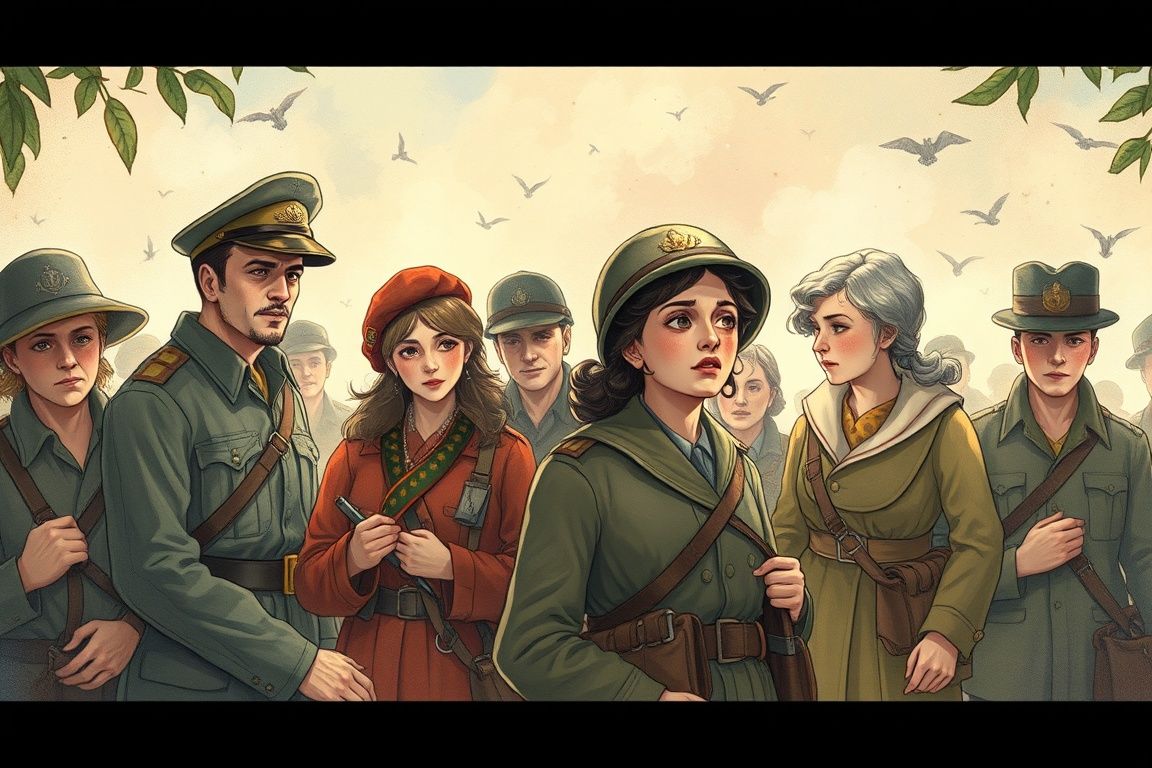World Wars I and II

This course covers the global conflicts that defined the 20th century. Participants will learn about the political tensions, major military campaigns, and far-reaching effects of both World Wars on nations, economies, and international relations.
Why It’s Worth It
Gain a comprehensive understanding of the causes and consequences of global conflicts.
Enhance your analytical skills by examining military strategies and political decisions.
Prepare for discussions or further studies in history, politics, and international relations.
Your Learning Roadmap
Foundations of Global Conflict
This module provides an overview of the key developments before the 20th century that created conditions for global conflict. Participants will learn about the structure of empires, emerging nation-states, and the ideological trends that culminated in widespread tensions. By understanding these early dynamics, students will gain insights into how the stage was set for both World Wars. Pre-Modern Empires and Nation-States Economic Rivalries and Globalization Ideological Currents and Nationalism
Politics and Diplomacy Before WWI
This module explores the intricate web of alliances, treaties, and political rivalries before the outbreak of World War I. Learners will study the diplomatic strategies and crises that escalated into large-scale conflict. The module sets a foundation for understanding how political missteps and nationalistic fervor led to global warfare. Alliance Systems and Military Pacts Imperial Ambitions and Rivalries Diplomatic Crises and Escalation
World War I: Battles, Tactics, and Innovation
This module focuses on the military history of World War I, detailing the key battles and strategies that defined the conflict. Students will learn about trench warfare, new military tactics, and the role of technological advancements in shaping outcomes on the battlefield. The content connects historiographical debates from works such as Tuchman’s and Clark’s, offering multiple perspectives on the strategies employed during the war. Major Battles and Campaigns Trench Warfare and Defensive Strategies Innovations in Military Technology
Interwar Period and the Rise of Extremism
This module highlights the economic, political, and social consequences of World War I that led to significant changes in global ideologies. It explores how the failure of treaties and economic crises created fertile ground for extremist ideologies and authoritarian regimes. The lessons draw on historical frameworks to analyze the roots of the conflicts that would spark World War II. Economic and Political Fallout of WWI The Rise of Totalitarian Regimes Diplomacy and Treaty Failures
World War II: Global Battlefields and Strategy
This module delves into the complex and multi-faceted nature of World War II, examining the military strategies and global campaigns that influenced its course. It covers the outbreak of war, major military operations, and the role of diplomacy and intelligence in shaping outcomes. The module uses narratives and frameworks popularized in books like Antony Beevor’s and Shirer’s works, providing students with a robust understanding of WWII dynamics. Causes and the Outbreak of WWII Key Military Campaigns and Battles Diplomacy, Intelligence, and War Strategy
Aftermath and Legacy of the World Wars
This final module analyzes the reconstruction, political restructuring, and social changes following the global conflicts. It provides insights into economic recovery, the establishment of international organizations, and evolving national identities. The lessons encourage learners to draw lessons from history and understand the legacy that shapes modern global politics. Rebuilding Nations and Shaping International Order Economic and Social Transformations Historical Lessons and Future Implications
What Users Are Saying
All You Need to Know
Enroll Now!
Real-time engagement with an AI tutor for personalized learning.
Flexible schedule allows you to learn at your own pace.
Interactive modules with instant feedback on your understanding.
Access to a rich curriculum covering major historical events.
In-depth analysis of historical contexts for better understanding.
Practical applications to relate historical lessons to current issues.
